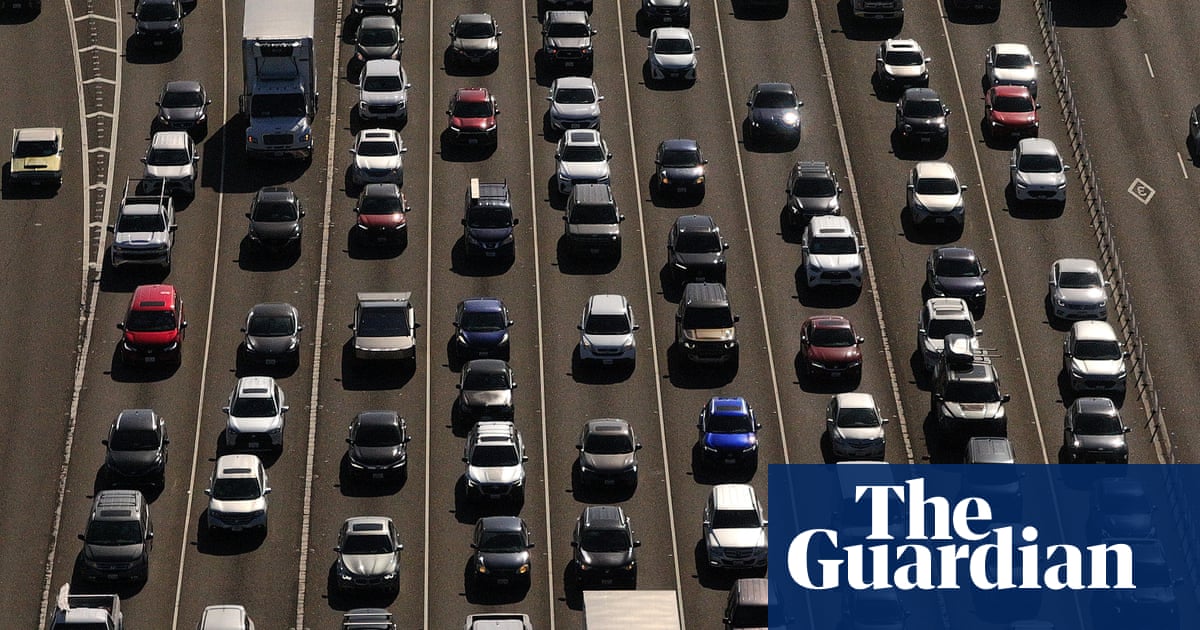- Get link
- X
- Other Apps
- Get link
- X
- Other Apps

Supreme Court Ruling Opens Door for Challenges to California's Emission Standards
In a significant decision with potential ramifications for climate policy, the US Supreme Court has ruled that fossil fuel companies can challenge California's ability to set stricter emission standards for vehicles. This ruling, a 7-2 vote in favor of the challenge, could unravel one of the key tools used to curb planet-heating emissions in recent years.
At the heart of the matter is a waiver that California has periodically received from the federal government since 1967. This waiver, granted under the Clean Air Act, allows the state to set tougher vehicle emission standards than the national rules. California has also stipulated that only zero-emission cars will be sold within its borders by 2035, a move aimed at drastically reducing its carbon footprint.
While the Clean Air Act generally prevents states from setting their own standards, California has been granted unique authority due to its pioneering role in advocating for cleaner vehicles. Other states are also permitted to adopt California's stricter standards.
The challenge to the waiver was brought by oil and gas companies, along with 17 Republican-led states, who argue that it causes financial harm. The waiver faced previous challenges during Donald Trump's presidency, when it was revoked, but it was later reinstated by the Biden administration.
Here's a breakdown of the key elements of the case:
- The Supreme Court overturned a lower court's decision to dismiss the lawsuit filed by a Valero Energy subsidiary and fuel industry groups.
- The lower court had initially concluded that the plaintiffs lacked the legal standing to challenge the 2022 EPA decision that allowed California to set its own regulations.
- Justice Brett Kavanaugh, writing for the majority, stated that the government cannot target a business or industry through stringent regulations and then claim that the targets are unaffected bystanders.
- Liberal Justices Sonia Sotomayor and Ketanji Brown Jackson dissented from the decision.
The American Fuel & Petrochemical Manufacturers, one of the groups challenging the waiver, has argued that California and the federal government have "stretch[ed] and abuse[d]" the Clean Air Act.
Environmentalists and California's Democratic leadership have staunchly defended the waiver, emphasizing its role in driving vehicle innovation and reducing greenhouse gas emissions. Transportation is the largest contributor to planet-heating pollution in the US.
Andrea Issod, senior attorney at the Sierra Club, stated, "California and other clean car states cannot achieve federal clean air standards and protect communities without reducing harmful transportation pollution."
Vickie Patton, general counsel of the Environmental Defense Fund, clarified that the Supreme Court's ruling does not immediately invalidate California's pollution standards. "While the supreme court has now clarified who has grounds to bring a challenge to court, the decision does not affect California’s bedrock legal authority to adopt pollution safeguards, nor does it alter the life-saving, affordable, clean cars program itself.”
This Supreme Court decision marks a pivotal moment in the ongoing debate over environmental regulations and states' rights. While the ruling itself doesn't eliminate California's standards, it opens the door for future legal challenges that could significantly impact the state's ambitious climate goals and potentially influence vehicle emission standards nationwide. The future of cleaner transportation now hinges on how these challenges unfold and the legal arguments that will be presented in the coming months and years.
Tags: California standards, fossil fuels, US supreme court, emission rules, zero-emission cars, clean air act, pollution, climate change, oil companies, car emissions, environmental regulations, states' rights
Source: https://www.theguardian.com/us-news/2025/jun/20/supreme-court-ruling-california-emission-limits
California standards
car emissions
clean air act
Climate change
emission rules
fossil fuels
oil companies
pollution
US supreme court
zero-emission cars
- Get link
- X
- Other Apps
Comments
Post a Comment